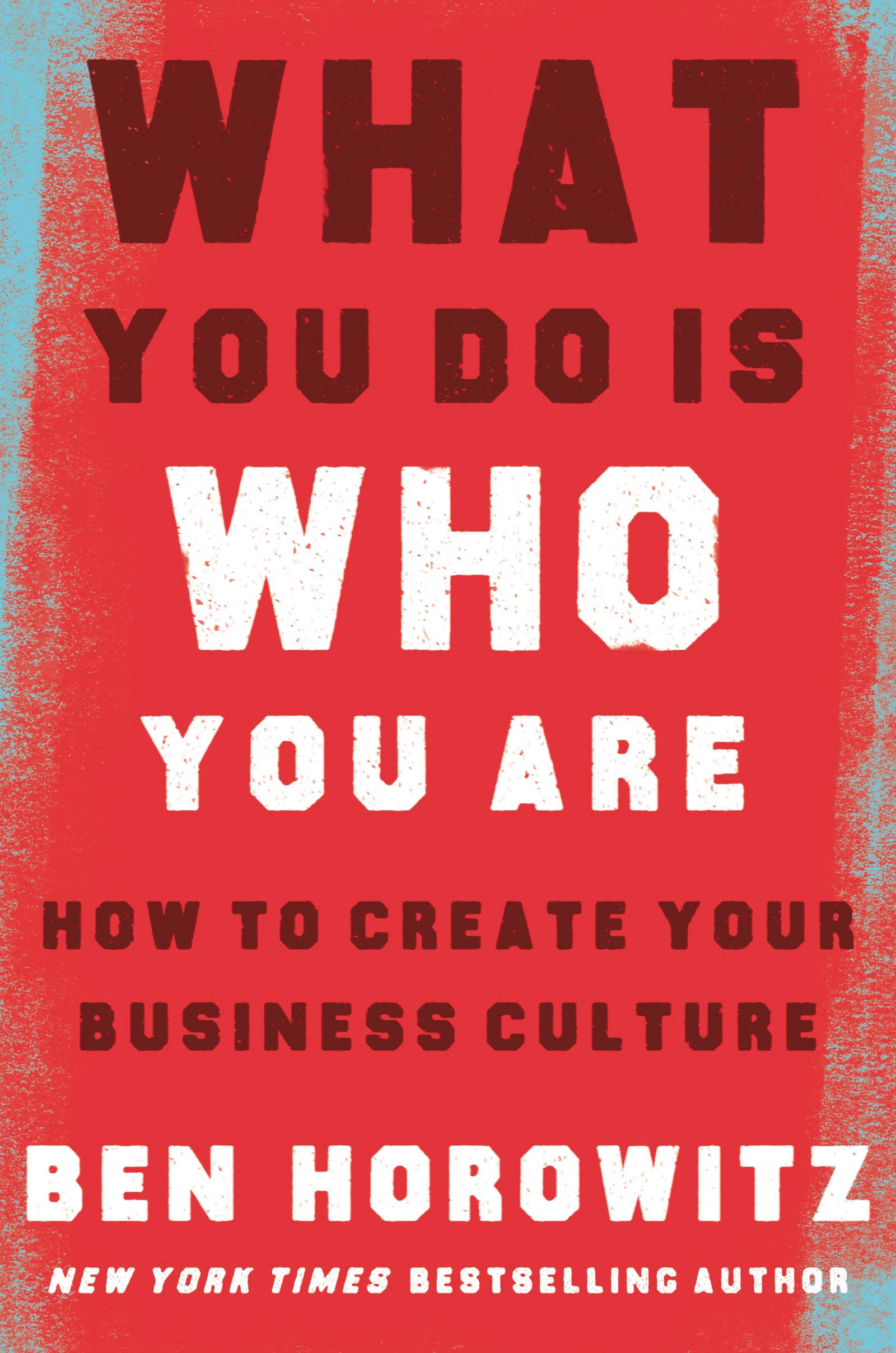I first encountered the writing of Ben Horowitz through his book The Hard Thing about Hard Things. That book came to me when I was going through a challenging time in my company, and it helped me. Partly it was the stories Ben told that made me glad I was not in his shoes. I realized my situation could be a lot worse. It was also the concrete and practical suggestions that I could make use of in the moment. So when I saw a new book by Ben, I purchased it immediately.

What you do is who you are is focused on the things you can do to build an excellent work culture, or rescue one that is not excellent. Through the same combination of story and tactics Ben describes some of his experiences and identifies the lessons he learned along the way.
The core message of the book is a simple one; that your team will do what you do, more often that do what you say.
The members of your team make hundreds or thousands of decisions each day that impact the culture of your business, and the experience of your customers and your team. You need to be intentional about what you do and how you describe your choices to give you team a roadmap to follow.
“Do I have to be on time for that meeting? Should I stay at the Four Seasons or the Red Roof Inn? When I negotiate this contract, what’s more important: the price or the partnership? Should I point out what my peers do wrong, or what they do right? Should I go home at 5 p.m. or 8 p.m.? How hard do I need to study the competition? Should we discuss the color of this new product for five minutes or thirty hours? If I know something is badly broken in the company, should I say something? Whom should I tell? Is winning more important than ethics?” – Page 3
There were lots of quotes that touched on things I knew to be true, just provided in a very well written, tidy example I could cite and remember.
“Culture is not like a mission statement; you can’t just set it up and have it last forever. There’s a saying in the military that if you see something below standard and do nothing, then you’ve set a new standard. This is also true of culture—if you see something off-culture and ignore it, you’ve created a new culture.” – Page 5
I really appreciate the humility and wisdom that inform Ben’s writing. He somehow manages to sounds wise and familiar at the same time.
“If you manage a reasonably large organization, you can be absolutely sure of one thing: at any given moment, something somewhere has gone terribly wrong.” – Page 238
If you’re responsible for culture at a company, or you’re working to improve the culture where you work, this is a great read.